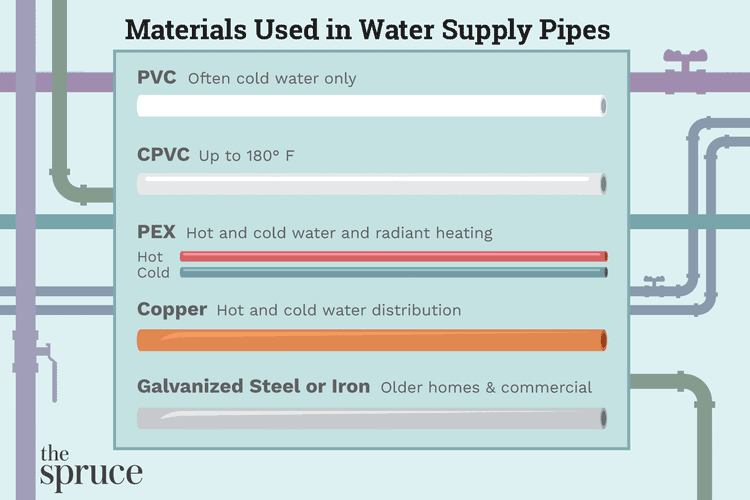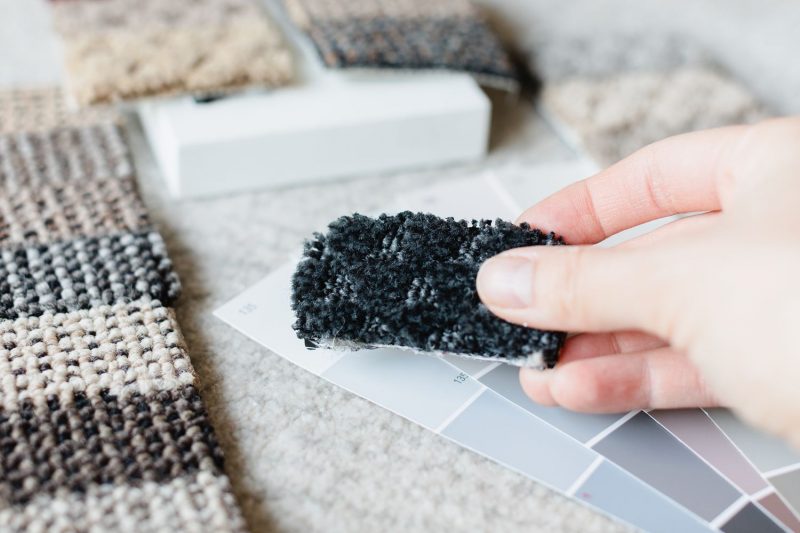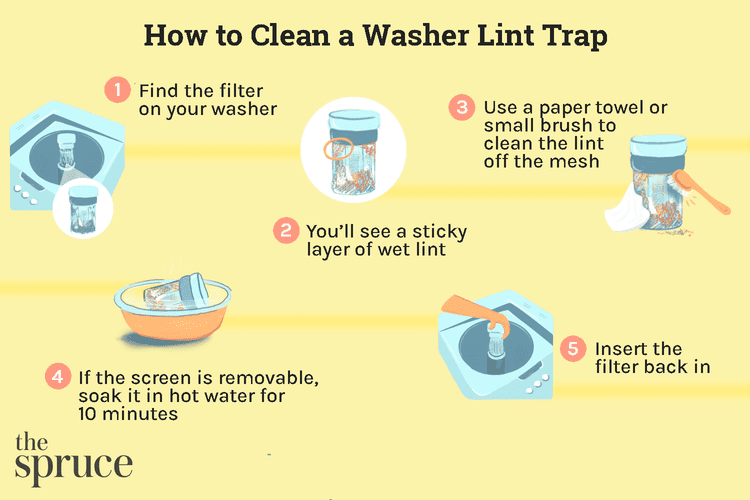
Project Summary
- Duration of Work: 30 minutes
- Overall Duration: 40 minutes
Older washing machines, particularly those that are not high-efficiency, are equipped with a lint trap akin to that found in dryers. To ensure your laundry remains free of lint and retains a pleasant scent, it’s necessary to manually clear the lint from the trap. The process of lint removal in a washing machine might not be as straightforward as in a dryer, so it’s advisable to follow these steps to clear any lint that could be obstructing your machine.
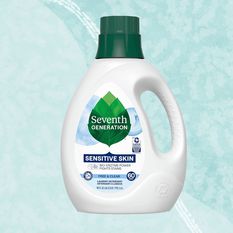
The Top 8 Environmentally Friendly Laundry Detergents
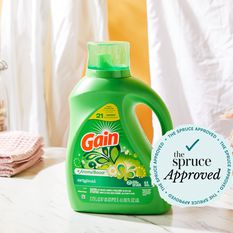
The Top 8 Laundry Detergents with the Most Pleasant Scents, Evaluated and Analyzed
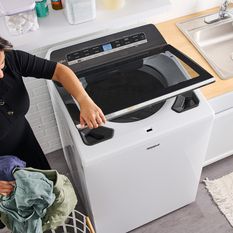
The Top 3 Top-Load Washing Machines We’ve Evaluated
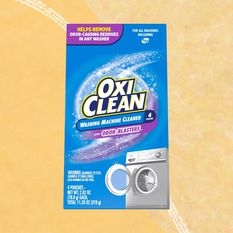
The Top 5 Cleaners for Washing Machines
Contents
Requirements You’ll Need
Devices / Instruments
- Tiny brush
Materials
- Absorbent paper sheets
- Liquid detergent for dishes
- Warm water
Instructions
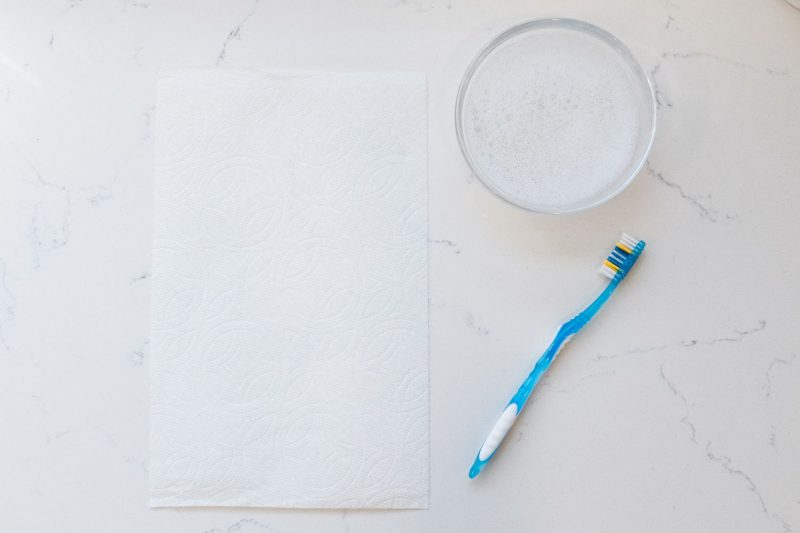
Frequency of Cleaning the Lint Trap
To ensure optimal performance of your washing machine and minimize lint transfer onto your garments, it’s advisable to clean the lint filter a minimum of four times a year.
Ways to Clean Detachable Lint Filters
Locate the Filter
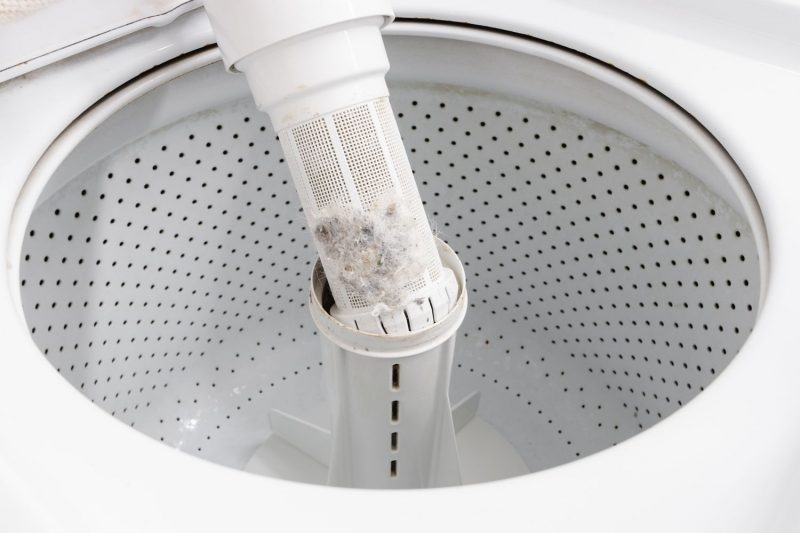
If you possess the operating or repair manual for your appliance, it will indicate the location of the lint filter for the washer. If you need to search for it, consider looking in the following areas:
- The upper edge of the washing machine drum: Run your fingers along the perimeter of the drum, and you may discover a removable screen or a significant amount of lint that requires cleaning.
- At the upper section of the central agitator, the cap is frequently detachable for cleaning purposes. Certain filters are located within the central agitator. If the cover of your agitator is detachable, inspect the area near the base where it connects to the tub. In various models, the upper part of the central agitator can be unscrewed for maintenance.
- To reach the water pump filter on a typical top-loading washing machine, you must first take off the outer casing of the machine. The filter for the drainage hose is found at the point where the hose connects to the washer’s housing.
Take out the filter and immerse it in water.
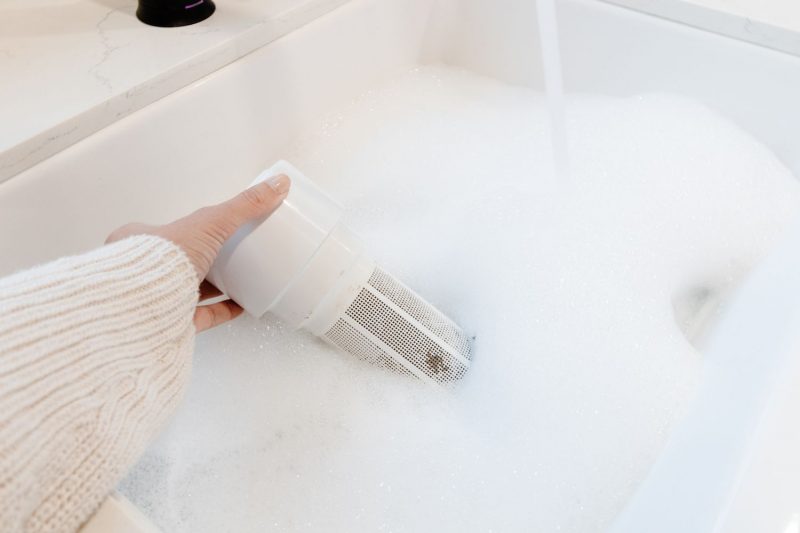
If the screen can be detached, immerse it in a basin filled with hot water and dish soap for 10 minutes prior to reinstallation. This hot water mixture will assist in removing any soap or fabric softener buildup that may hinder drainage. For non-removable filters, utilize a small brush or a paper towel to wipe away any lint.
Clear the area around the filter.
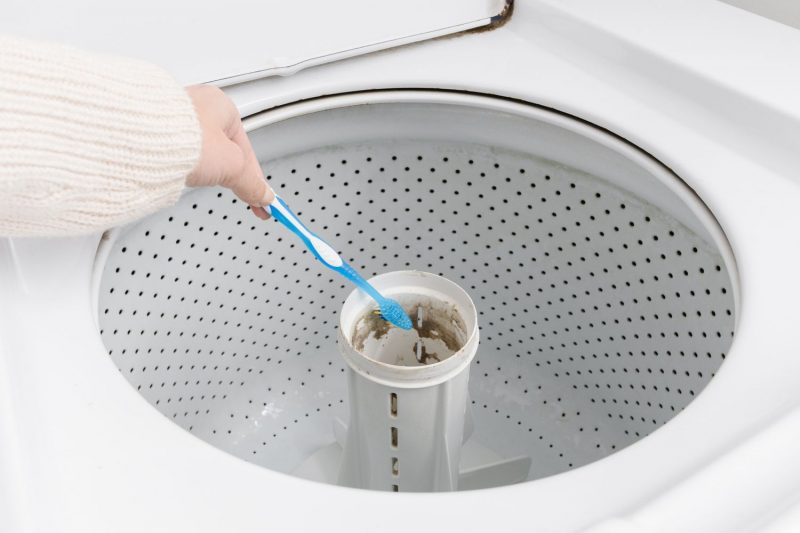
Utilize paper towels and a small brush to thoroughly clean the area around the filter, ensuring the removal of any residue from the inside of the appliance. Make sure to reach into the nooks and crannies.
Bring back the filter.
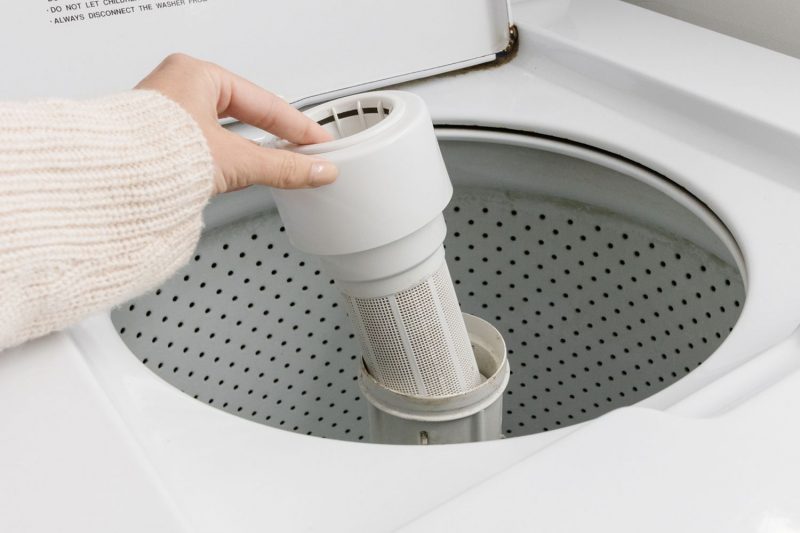
Reinsert the filter into its designated spot before starting another laundry cycle.
Steps for Cleaning a Water Pump Filter
Modern high-efficiency washers, whether front-loading or top-loading, are designed to be self-cleaning and lack a removable lint filter. Since these machines consume significantly less water compared to older models, it’s beneficial to perform a cleaning cycle once a month to eliminate lint buildup. This cycle not only helps to manage odors but also sanitizes the appliance.
If you continue to notice lint, it’s possible that the filter in your water pump is blocked. This blockage can cause the water from the wash and rinse cycles, which contains dirt and lint, to drain more slowly, resulting in residue on your garments. To enhance your washer’s efficiency, it’s advisable to clean the water pump filter on a regular basis.
